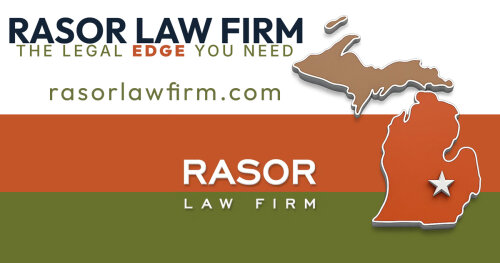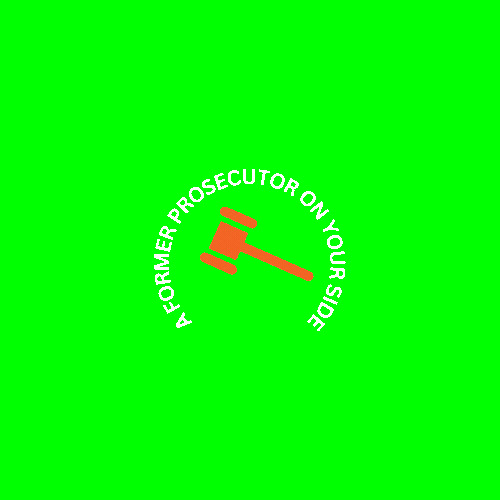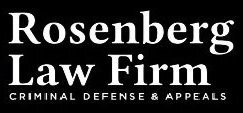Best Drunk Driving Lawyers in Maryland
Share your needs with us, get contacted by law firms.
Free. Takes 2 min.
Or refine your search by selecting a city:
List of the best lawyers in Maryland, United States
About Drunk Driving Law in Maryland, United States
Drunk driving, legally known as driving under the influence (DUI) or driving while impaired (DWI), is a serious offense in Maryland. The state has strict laws that prohibit operating a motor vehicle while under the influence of alcohol or drugs. These laws are in place to protect drivers, passengers, and pedestrians from the dangers associated with impaired driving. In Maryland, even a small amount of alcohol can result in criminal charges if it impairs your ability to drive safely.
Why You May Need a Lawyer
If you have been arrested or charged with drunk driving in Maryland, you may need a lawyer for several reasons. A conviction for DUI or DWI can result in severe consequences, including fines, license suspension, jail time, increased insurance rates, and a permanent criminal record. Common situations where legal help may be required include:
- First-time or repeat DUI/DWI offenses
- Accidents or injuries associated with a drunk driving charge
- Refusal to submit to breath, blood, or urine testing
- Facing administrative license suspension proceedings with the Motor Vehicle Administration (MVA)
- Contesting field sobriety test results or police procedures
- Seeking a restricted or hardship driver’s license
- Navigating plea bargains or diversion programs
Local Laws Overview
Maryland drunk driving laws distinguish between two main offenses: DUI (driving under the influence) and DWI (driving while impaired). For adults age 21 and over, a blood alcohol concentration (BAC) of 0.08 percent or higher typically results in a DUI charge. A BAC between 0.04 percent and 0.07 percent may result in a DWI charge if impairment is observed. For drivers under 21, a much lower BAC limit of 0.02 percent applies under Maryland’s zero tolerance policy.
Penalties for DUI/DWI in Maryland include fines, potential jail time, mandatory alcohol education programs, installation of ignition interlock devices, and points added to your driving record. Repeat offenders and cases involving aggravating factors, such as injuries or child passengers, face enhanced penalties. Refusing a chemical test can lead to immediate license suspension under the state’s implied consent laws.
Frequently Asked Questions
What is the legal blood alcohol limit in Maryland?
For drivers age 21 and over, the legal BAC limit is 0.08 percent. Drivers under 21 must have a BAC lower than 0.02 percent. Commercial drivers are subject to a 0.04 percent limit.
What are the penalties for a first-time DUI offense in Maryland?
Penalties may include up to one year in jail, fines up to one thousand dollars, a six-month license suspension, points on your license, and participation in an alcohol education program.
How does a DWI differ from a DUI?
A DUI is generally charged at a BAC of 0.08 percent or higher and carries more severe penalties than a DWI, which may be charged at a lower BAC if impairment is evident.
Can I refuse a breathalyzer or chemical test?
You have the right to refuse, but this can result in an immediate administrative license suspension and other legal consequences under Maryland’s implied consent laws.
Will a DUI conviction remain on my record?
Yes, a DUI or DWI conviction will stay on your criminal and driving record and can have long-term effects on your insurance rates and employment opportunities.
Can I get a restricted or hardship license after a DUI?
In some cases, you may be eligible for a restricted license allowing you to drive to work, school, or medical appointments, often with an ignition interlock device installed.
What happens if I am under 21 and caught driving under the influence?
Maryland has a zero tolerance law for underage drinking and driving. A BAC of 0.02 percent or higher can lead to substantial penalties, including suspension of your license.
Can I challenge the results of a field sobriety or chemical test?
Yes, an experienced lawyer can help contest test procedures, results, and whether proper protocols were followed by law enforcement.
What should I do if I am pulled over for suspected drunk driving?
Remain calm, provide requested documentation, and be polite. You have the right to remain silent and to speak to an attorney before answering detailed questions.
Is it possible to reduce or dismiss a DUI/DWI charge?
Depending on the circumstances, a lawyer may be able to negotiate a plea bargain, seek a dismissal, or reduce charges, especially if there are weaknesses in the prosecution’s case.
Additional Resources
If you need more information or support, the following organizations and agencies can provide helpful guidance regarding drunk driving laws and legal assistance in Maryland:
- Maryland Motor Vehicle Administration (MVA)
- Maryland State Police
- Maryland Judiciary (District Court)
- Governor’s Office of Crime Prevention, Youth, and Victim Services
- Maryland Office of the Public Defender
- Maryland Bar Association
- Local legal aid organizations
- Substance abuse counseling and treatment centers
Next Steps
If you are facing drunk driving charges in Maryland, it is important to act quickly to protect your rights. Here are some steps to consider:
- Gather all documents related to your arrest, including police reports and court notices
- Contact an experienced criminal defense attorney who specializes in DUI/DWI cases
- Attend all required court and MVA hearings
- Follow any court-ordered restrictions or requirements
- Consider enrolling in an alcohol education or treatment program if advised by your attorney
Being charged with drunk driving is a serious matter, but timely legal advice and representation can make a substantial difference in the outcome of your case.
Lawzana helps you find the best lawyers and law firms in Maryland through a curated and pre-screened list of qualified legal professionals. Our platform offers rankings and detailed profiles of attorneys and law firms, allowing you to compare based on practice areas, including Drunk Driving, experience, and client feedback.
Each profile includes a description of the firm's areas of practice, client reviews, team members and partners, year of establishment, spoken languages, office locations, contact information, social media presence, and any published articles or resources. Most firms on our platform speak English and are experienced in both local and international legal matters.
Get a quote from top-rated law firms in Maryland, United States — quickly, securely, and without unnecessary hassle.
Disclaimer:
The information provided on this page is for general informational purposes only and does not constitute legal advice. While we strive to ensure the accuracy and relevance of the content, legal information may change over time, and interpretations of the law can vary. You should always consult with a qualified legal professional for advice specific to your situation.
We disclaim all liability for actions taken or not taken based on the content of this page. If you believe any information is incorrect or outdated, please contact us, and we will review and update it where appropriate.
Browse drunk driving law firms by city in Maryland
Refine your search by selecting a city.















